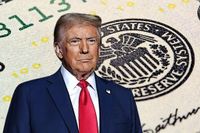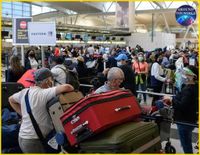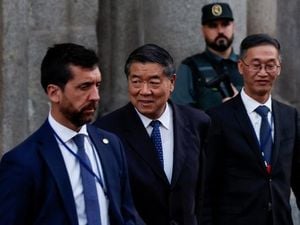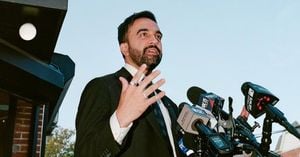Countries across Europe are turning cautious about travel to the United States due to increasing entry restrictions implemented under President Donald Trump’s administration. Recent warnings from both Germany and the United Kingdom highlight the high risks faced by travelers, especially those attending academic and professional events.
On March 19, 2025, Germany took the significant step of issuing a travel advisory that cautioned its citizens against traveling to the U.S. Despite the historical allowance for German citizens to enter the U.S. without a visa, this new advisory underscores the growing concerns about being denied entry or experiencing lengthy detentions upon arrival. Reports indicate that several individuals have recently faced detainment at U.S. borders, fueling fears that the consequences of Trump's immigration policies may extend beyond non-citizens to include even friendly nation travelers.
The British government also revised their travel recommendations following similar concerns. They caveated their statements by insisting that travelers must comply with all visa requirements and other entry protocols, in effect signaling a tightening of entry evaluations for incoming travelers. A government spokesperson emphasized, "You must comply with all requirements for the entering of any kind, visa, and other entry conditions," shedding light on the increasingly stringent checks enforced at U.S. entry points.
These travel warnings come amidst a broader backdrop of the Trump administration’s push for enhanced immigration regulations. High-ranking officials have expressed alarm over potential espionage associated with academic research, contributing to the heightened scrutiny of foreign scholars and professionals seeking entry to the U.S. Notably, on March 9, 2025, a French scientist traveling to attend a conference near Houston was deported after federal agents seized his computer and mobile device, reportedly discovering comments critical of Trump’s policies on his phone. Philippe Baptiste, the French Minister of Higher Education, strongly condemned the United States’ actions, asserting, "The freedom to express opinions, freedom of research, and academic freedom are values we will uphold with pride."
As accusations of derogatory sentiments and potentially threatening rhetoric surface around travelers entering the U.S., analysts suggest that the government is actively working to navigate the tension between national security interests and the facilitation of international scholarly exchange. This increasingly adversarial approach could harm relationships with allied nations while appreciating the diverse insights and contributions their citizens bring to the academic community.
Simultaneously, Trump continues to apply pressure on the Federal Reserve regarding economic direction. On March 20, 2025, he proclaimed on his social media platform, Truth Social, that the Fed should move decisively to lower interest rates, as expectations of growth diverge sharply between his administration's forecasts and those of the Fed. Trump tweeted, "The Fed will do better to greatly adjust interest rates because our language officials will drive results to the economy... do something important! Independence Day of America!!!" With the Fed anticipating a growth expansion of 1.7% this year, Trump’s administration is boldly predicting figures as high as 2.5%.
The divergence in perspective reveals a rift not only in economic strategy but also in the philosophical approach to government intervention in markets. Economists, including Trump's advisor Kevin Hasset, provide support for the notion that fiscal innovations could potentially ameliorate impending inflation pressures, but skepticism remains around the ultimate efficacy of rate reductions without a corresponding rise in production and consumption.
As the U.S. grapples with its immigration policies and economic strategies, the tension between ensuring national security and fostering global partnerships is reaching a critical juncture. The ramifications of Trump's administration's stance will likely resonate well beyond individual travelers, shaping ongoing relations between the U.S. and its traditional allies.
The intersection of immigration challenges and economic directives illustrates the increasingly complex landscape that travelers and policymakers must navigate under U.S. governance. All eyes will be on how these discussions unfold as the country prepares to implement new tariff measures and refines its approach to international cooperation.






